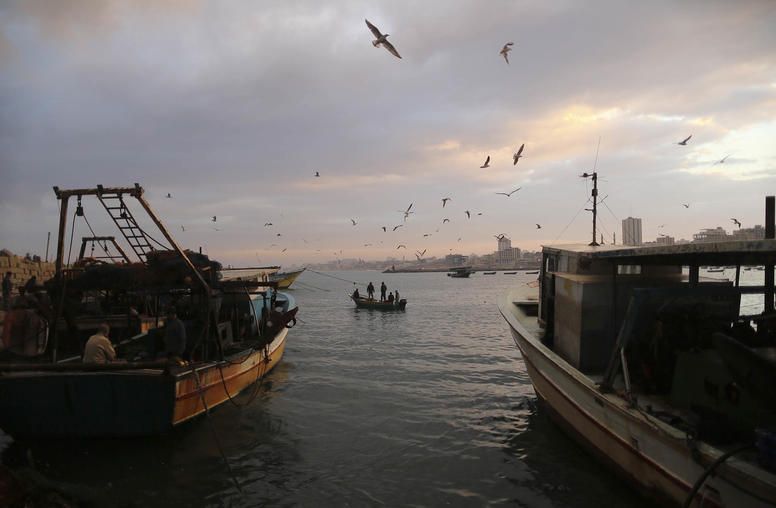Egypt Today: Historical Context of the Protests
USIP's Qamar-ul Huda, author of "The Crescent and Dove," talks about the recent developments in Egypt.
January 27, 2011
.jpg) USIP's Qamar-ul Huda, author of "The Crescent and Dove," talks about the current situation in Egypt.
USIP's Qamar-ul Huda, author of "The Crescent and Dove," talks about the current situation in Egypt.
- How do you assess what is happening politically in Egypt over the past few days as public outcry continues? Is this related to Tunisia?
- Given your expertise in conflict resolution and non-violence in contemporary Islam, what is the context for these protests in Egypt and the region? Is there a historical or religious significance to these protests and recent developments?
- What should we watch for next? Do you expect protests elsewhere in the region?
- Read additional perspectives >>
How do you assess what is happening politically in Egypt over the past few days as public outcry continues? Is this related to Tunisia?
The protests in Tunisia which ousted the dictator Ben Ali undoubtedly gave Egyptian and regional activists, academics, and other civil society members encouragement to demand more attention to the dwindling economy, high unemployment, and a more representative government. Tunisia's Jasmine Revolution is not the same as the Day of Rage in Egypt; while on the surface there are similarities, there are structural and institutional differences.
Egypt's flexible authoritarianism and strong support by the military makes it unlikely that the Hosni Mubarak regime will topple. Historically Mubarak has used these moments of social and political chaos to his advantage by first employing force to contain the rage, and then politically incorporating the dissenting voices into his camp.
The outpouring of anger in Egypt is forcing the ruling party, the National Democratic Party, to reevaluate their inabilities to produce a smooth political transition and ultimately the economic conditions in which the common person can survive. The ruling party will definitely find a few areas to accommodate the demands of the protesters, but most likely they will secure their rule by diffusing the opposition.
Given your expertise in conflict resolution and non-violence in contemporary Islam, what is the context for these protests in Egypt and the region? Is there a historical or religious significance to these protests and recent developments?
The Egyptian regime has always allowed symbolic public space for protests on human rights, fair elections, and rising costs of inflation. Despite these symbolic gestures of non-violent protests, Egyptian authorities have ruled with a heavy hand, as the police and special forces would often torture suspects, hold suspects illegally, and file fraudulent law suits against dissenters. Despite these unimaginable conditions, middle class activists, labor activists, unionists, as well as some members of the Muslim Brotherhood, used the Days of Rage to demonstrate their solidarity for a more pluralistic and representative society. All camps, Islamists, and human rights, union, and secular activists, agree in principle that non-violent protests and boycotts against the government's 31-year rule is not acceptable and that the government is incapable of dealing with rising cost of living and unemployment, which is around 18 percent. While the Muslim Brotherhood is not taking the lead in Egypt's protests, they do understand their role in religious language and symbolism.
What should we watch for next? Do you expect protests elsewhere in the region?
There are similar protests in Jordan, Yemen, and in Morroco and it looks like there will be more protests in other countries. While these protests are based on social, economical and political demands, each one has its own context in which the protests are operating. We need to see how various Arab regimes respond to the civil society protests and especially how these regimes respond to U.S. and international pressure for positive reforms.
Additional Perspectives
- USIP Tracks the Unfolding Situation in Egypt
Check here for a comprehensive look at the situation in Egypt. - Former U.S. Ambassador on Initial Days of Protest
By Daniel C. Kurtzer, former U.S. ambassador to Egypt - Shibley Telhami on Egypt
By Shibley Telhami, former USIP Board Member (2000-2002) - Read more: USIP Tracks the Unfolding Situation in Egypt



